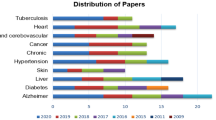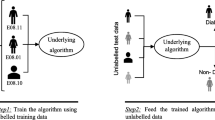Abstract
Traditional Chinese medicine (TCM) relies on the combined effects of herbs within prescribed formulae. However, given the combinatorial explosion due to the vast number of herbs available for treatment, the study of these combined effects can become computationally intractable. Thus feature selection has become increasingly crucial as a pre-processing step prior to the study of combined effects in TCM informatics. In accord with this goal, a new feature selection algorithm known as a co-evolving memetic wrapper (COW) is proposed in this paper. COW takes advantage of recent research in genetic algorithms (GAs) and memetic algorithms (MAs) by evolving appropriate feature subsets for a given domain. Our empirical experiments have demonstrated that COW is capable of selecting subsets of herbs from a TCM insomnia dataset that shows signs of combined effects on the prediction of patient outcomes measured in terms of classification accuracy. We compare the proposed algorithm with results from statistical analysis including main effects and up to three way interaction terms and show that COW is capable of correctly identifying the herbs and herb by herb effects that are significantly associated to patient outcome prediction.
Similar content being viewed by others
References
Wing Y K. Herbal treatment of insomnia. Hong Kong Medical Journal, 2001, 7(4): 392–402
Chen K, Yu B. Certain progress of clinical research on Chinese integrative medicine. Chinese Medical Journal, 1999, 112(10): 934–937
Zhou X, Chen S, Liu B, Zhang R, Wang Y, Li P, Guo Y, Zhang H, Gao Z, Yan X. Development of traditional Chinese medicine clinical data warehouse for medical knowledge discovery and decision support. Artificial Intelligence in Medicine, 2010, 48(2–3): 139–152
Ritchie M D, Hahn L W, Roodi N, Bailey L R, Dupont W D, Parl F F, Moore J H. Multifactor-dimensionality reduction reveals high-order interactions among estrogen-metabolism genes in sporadic breast cancer. American Journal of Human Genetics, 2001, 69(1): 138–147
Zhou X, Poon J, Kwan P, Zhang R, Wang Y, Poon S, Liu B, Sze D. Novel two-stage analytic approach in extraction of strong herb-herb interactions in TCM clinical treatment of insomnia. In: Zhang D, Sonka M, eds. Medical Biometrics. Lecture Notes in Computer Science, 2010, 6165: 258–267
Michalewicz Z. Genetic Algorithms + Data Structures = Evolution Programs. 3rd ed. London: Springer-Verlag, 1996
Guyon I, Elisseeff A. An introduction to variable and feature selection. Journal of Machine Learning Research, 2003, 3: 1157–1182
Kononenko I, Šimec E, Robnik-Šikonja M. Overcoming the myopia of inductive learning algorithms with RELIEF-F. Applied Intelligence, 1997, 7(1): 39–55
Zhu Z, Ong Y S, Dash M. Wrapper-filter feature selection algorithm using a memetic framework. IEEE Transactions on Systems, Man, and Cybernetics, Part B, 2007, 37(1): 70–76
Smith J E. Coevolving memetic algorithms: a review and progress report. IEEE Transactions on Systems, Man, and Cybernetics, Part B, 2007, 37(1): 6–17
Baker J E. Adaptive selection methods for genetic algorithms. In: Proceedings of the 1st International Conference on Genetic Algorithm and Their Applications. 1985, 101–111
Author information
Authors and Affiliations
Corresponding author
Additional information
Dion Detterer is a student currently completing his Bachelor of Computer Science with Honours at the University of New England, Australia, where he plans to commence research for his PhD in 2012. His current research interests include evolutionary algorithms, Bayesian computation, bioinformatics, GPU-based parallelisation, and cognitive architectures.
Paul Kwan is currently a senior lecturer in Computer Science in the School of Science and Technology at the University of New England, Australia. He received a BSc and an MSc in Computer Science from Cornell University and University of Arizona (USA) in 1986 and 1988, respectively. He was awarded his PhD in Advanced Engineering Systems in 2003 from University of Tsukuba, Japan. His current research interests include multimedia information processing and analysis, hand-based biometrics, pattern recognition and machine learning, bioinformatics, and biomedical data mining. He is a senior member of IEEE and a senior member of ACM.
Cedric Gondro is a Senior Lecturer in Animal Genetics at the University of New England in Australia. He received his PhD from the University of New England in 2005. His current research interests lie in the development and application of statistical and artificial intelligence methods, particularly evolutionary computation, applied to the analysis of high-throughput genomic data.
Rights and permissions
About this article
Cite this article
Detterer, D., Kwan, P. & Gondro, C. A co-evolving memetic wrapper for prediction of patient outcomes in TCM informatics. Front. Comput. Sci. 6, 621–629 (2012). https://doi.org/10.1007/s11704-012-2959-0
Received:
Accepted:
Published:
Issue Date:
DOI: https://doi.org/10.1007/s11704-012-2959-0




